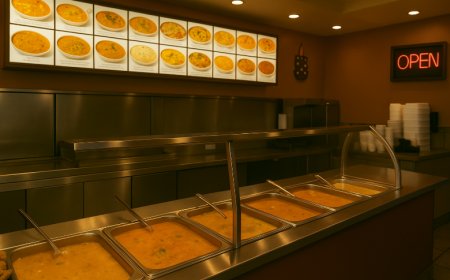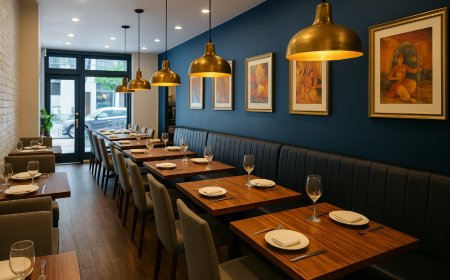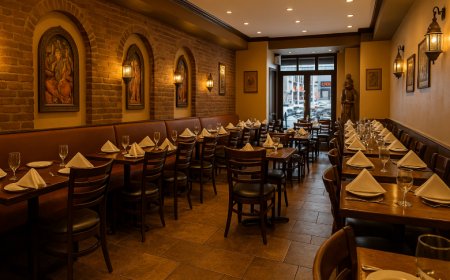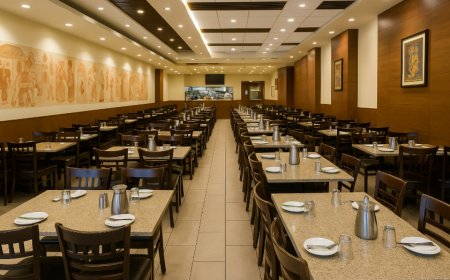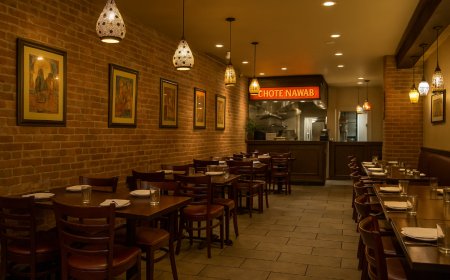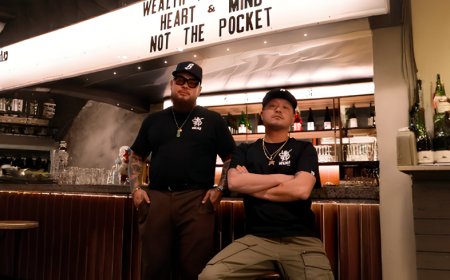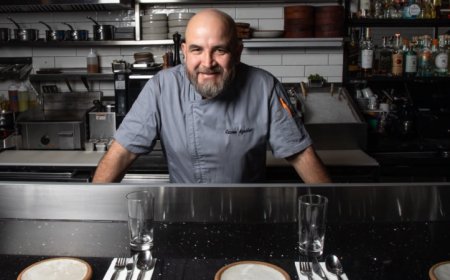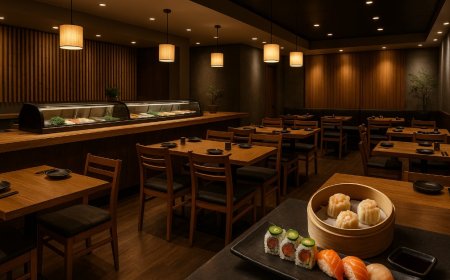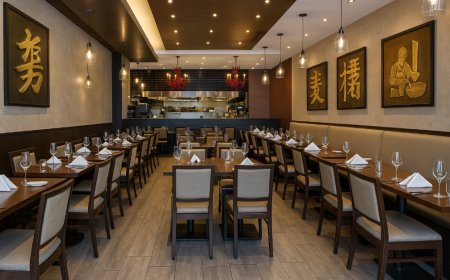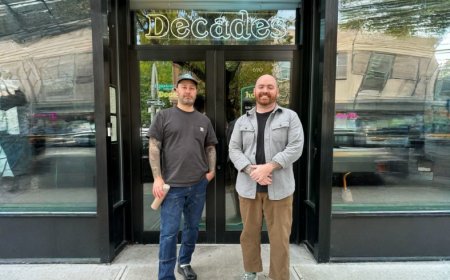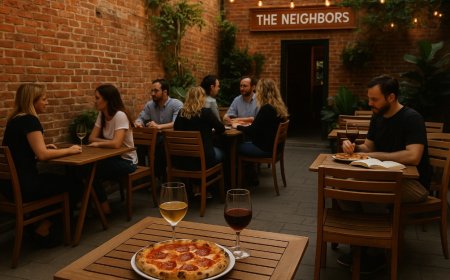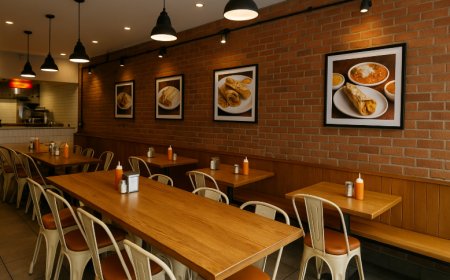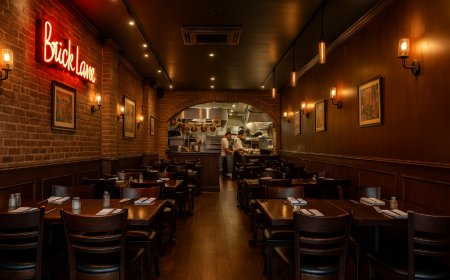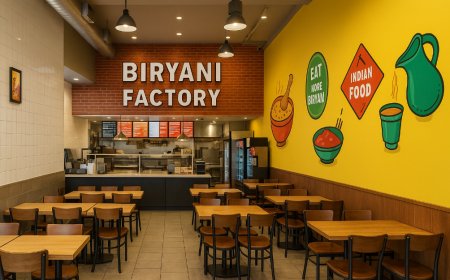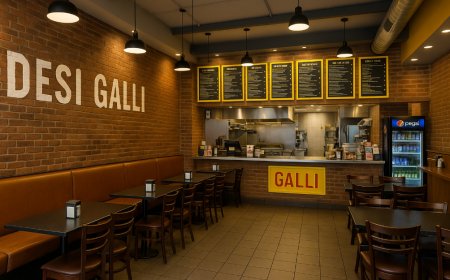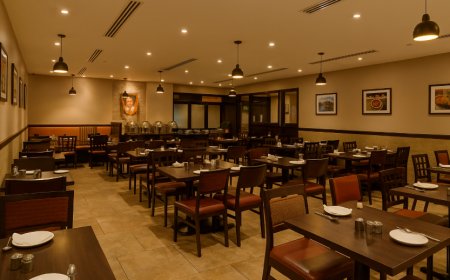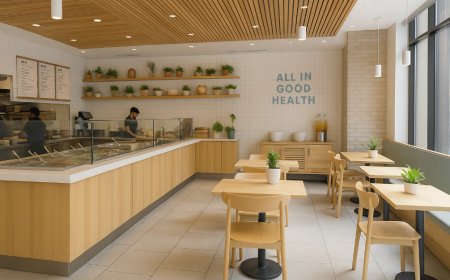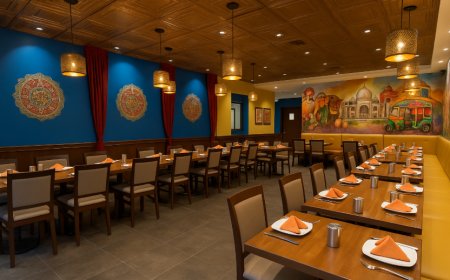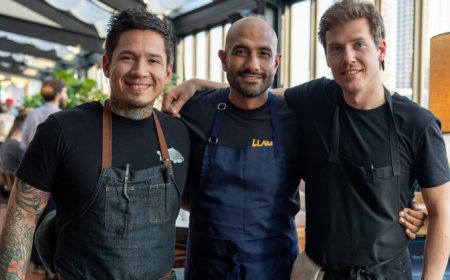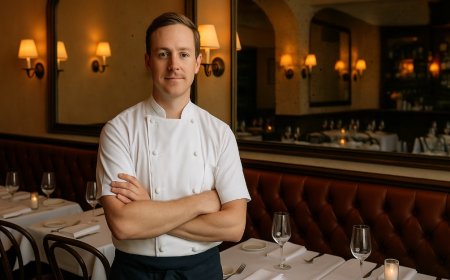Celebrating Two Decades of Culinary Innovation: The Blue Hill Legacy of Chef Dan Barber
Explore the inspiring journey of Chef Dan Barber and the evolution of Blue Hill at Stone Barns, a pioneering force in sustainable, farm-to-table dining that’s redefining the future of food in America.

A Culinary Landmark at 20: A Look Into Blue Hill’s Legacy
In the world of fine dining, where trends rise and fall with each season, few names have endured with the grace and purpose of Chef Dan Barber and his Blue Hill restaurants. As Blue Hill at Stone Barns marks its 20th anniversary, it’s not just a celebration of culinary excellence—it’s a reflection of a movement that reshaped how America thinks about food.
Nestled in Pocantico Hills, New York, Blue Hill at Stone Barns isn’t just a restaurant. It’s a destination—a place where agriculture, sustainability, and culinary innovation merge. Over the past two decades, it has become synonymous with hyper-seasonal menus, deep respect for the land, and Barber’s unrelenting quest to reinvent the food system.
The Story Behind the Concept
Dan Barber began his culinary journey with the original Blue Hill restaurant in Manhattan’s Greenwich Village, setting the tone for what would become one of the country’s most respected farm-to-table experiences. But it was the launch of Blue Hill at Stone Barns in 2004 that transformed the vision into something far more radical.
Located on a former Rockefeller estate and part of the Stone Barns Center for Food and Agriculture, the restaurant became a living experiment in sustainable farming and responsible gastronomy. Barber collaborated with farmers, breeders, and agricultural scientists to tailor crops and livestock specifically for flavor and environmental impact.
From petite vegetables bred for sweetness to heritage grains milled on-site, every bite at Blue Hill represents years of collaboration and thoughtful innovation.
A Chef’s Culinary Philosophy
Chef Dan Barber’s culinary philosophy goes far beyond seasonal cooking. He believes in shaping the food system at its root—literally. His approach involves growing ingredients that are not only flavorful but also environmentally regenerative.
Rather than designing menus and sourcing ingredients to fit them, Barber reverses the process. He listens to the land and builds dishes around what it naturally yields. That could mean serving underappreciated cuts of meat, spotlighting overlooked vegetables, or exploring crop rotations that support soil health.
The result? A dining experience that’s both elegant and educational—where flavor and ethics are intertwined.
What Makes the Menu Special
Blue Hill at Stone Barns defies the traditional structure of a restaurant menu. Guests don’t order off a list. Instead, they’re guided through a tasting experience that changes nightly, shaped by what’s fresh, in-season, and thriving on the farm.
There is no pomp or spectacle here—no molecular gastronomy or theatrics. The magic lies in simplicity. A roasted beet might be paired with sunflower butter made from farm-harvested seeds, or a piece of just-caught fish might arrive with fermented radish and house-grown herbs.
But beneath that simplicity is a complex ecosystem: one where every ingredient, from banana leaves in the greenhouse to minuscule carrots, has been cultivated with intention.
Shaping the Future of Food
More than just a chef, Dan Barber has emerged as one of the most influential food thinkers of our time. His efforts to educate diners and fellow chefs about sustainable agriculture have made him a central voice in the conversation around America’s food future.
He’s helped popularize concepts like whole-farm cooking and varietal breeding—ideas that now resonate across kitchens from Brooklyn to Berkeley. Whether through his writings, such as the acclaimed book The Third Plate, or partnerships with agricultural scientists, Barber’s goal remains constant: to create a system where flavor, sustainability, and nutrition coexist.
And with the 20th anniversary of Blue Hill at Stone Barns, the momentum only continues to build.
A Quiet Revolution in Pocantico Hills
What began as a restaurant now functions as a food lab, an incubator, and a beacon for culinary sustainability. Visitors to Blue Hill often leave with more than a full stomach—they depart with a changed mindset. They start to question where their food comes from and what kind of future they are supporting with their choices.
That’s exactly what Dan Barber hopes for.
Stone Barns today is not just a place of dining but a hub of education and experimentation. Its greenhouses, grain fields, and livestock operations operate in synergy with the kitchen, creating a closed-loop system that many modern restaurants aspire to replicate.
Looking Ahead: The Next Chapter
As Chef Barber reflects on the past two decades, his gaze remains firmly on the horizon. The restaurant has recently shifted to a more collaborative model, inviting guest chefs and culinary thinkers to participate in seasonal residencies. This evolution underscores Blue Hill’s commitment to staying dynamic and inclusive.
The vision is no longer just about what Blue Hill can serve. It’s about what it can inspire across the industry and how it can help redefine the very notion of fine dining.
In a world increasingly aware of climate impact and food sourcing, the work being done at Stone Barns feels more essential than ever.
Conclusion: A Legacy Rooted in Purpose
At its core, the story of Blue Hill and Chef Dan Barber is about care—care for the land, for the food, and for the future. Twenty years on, the restaurant stands as a symbol of what’s possible when chefs think beyond the plate.
As diners continue to seek more meaningful experiences, Blue Hill at Stone Barns offers a blueprint: one that values connection over convenience, craft over conformity, and purpose over pretense.
Chef Dan Barber’s journey is not merely about reinventing fine dining. It’s about rebuilding our relationship with food—one ingredient, one dish, one seed at a time.
What's Your Reaction?
 Like
0
Like
0
 Dislike
0
Dislike
0
 Love
0
Love
0
 Funny
0
Funny
0
 Angry
0
Angry
0
 Sad
0
Sad
0
 Wow
0
Wow
0

